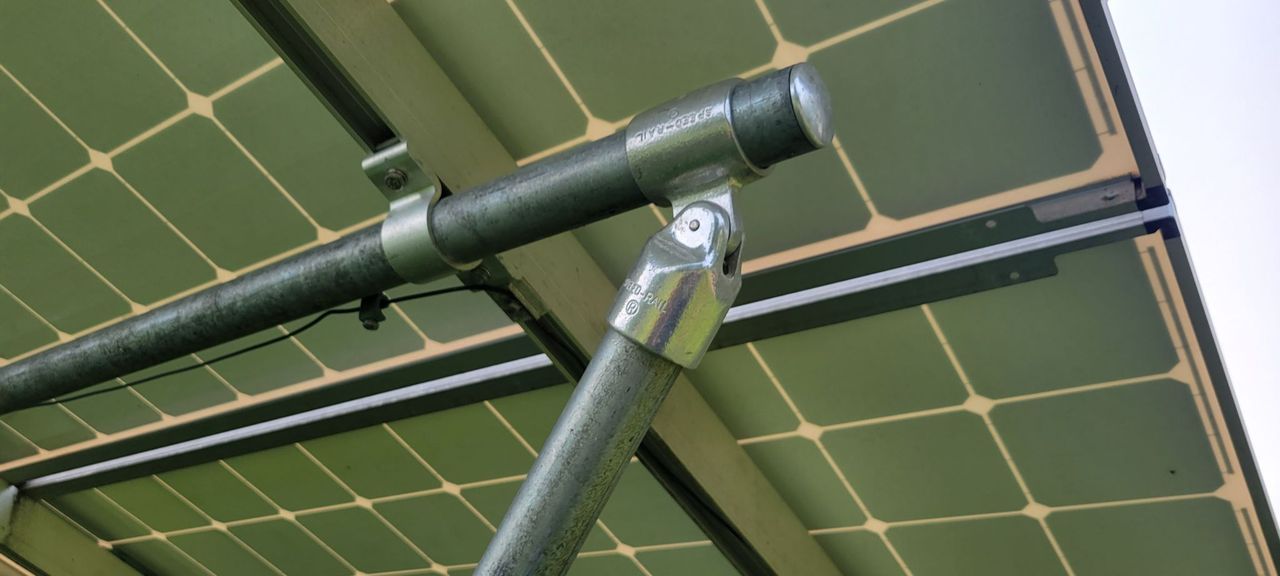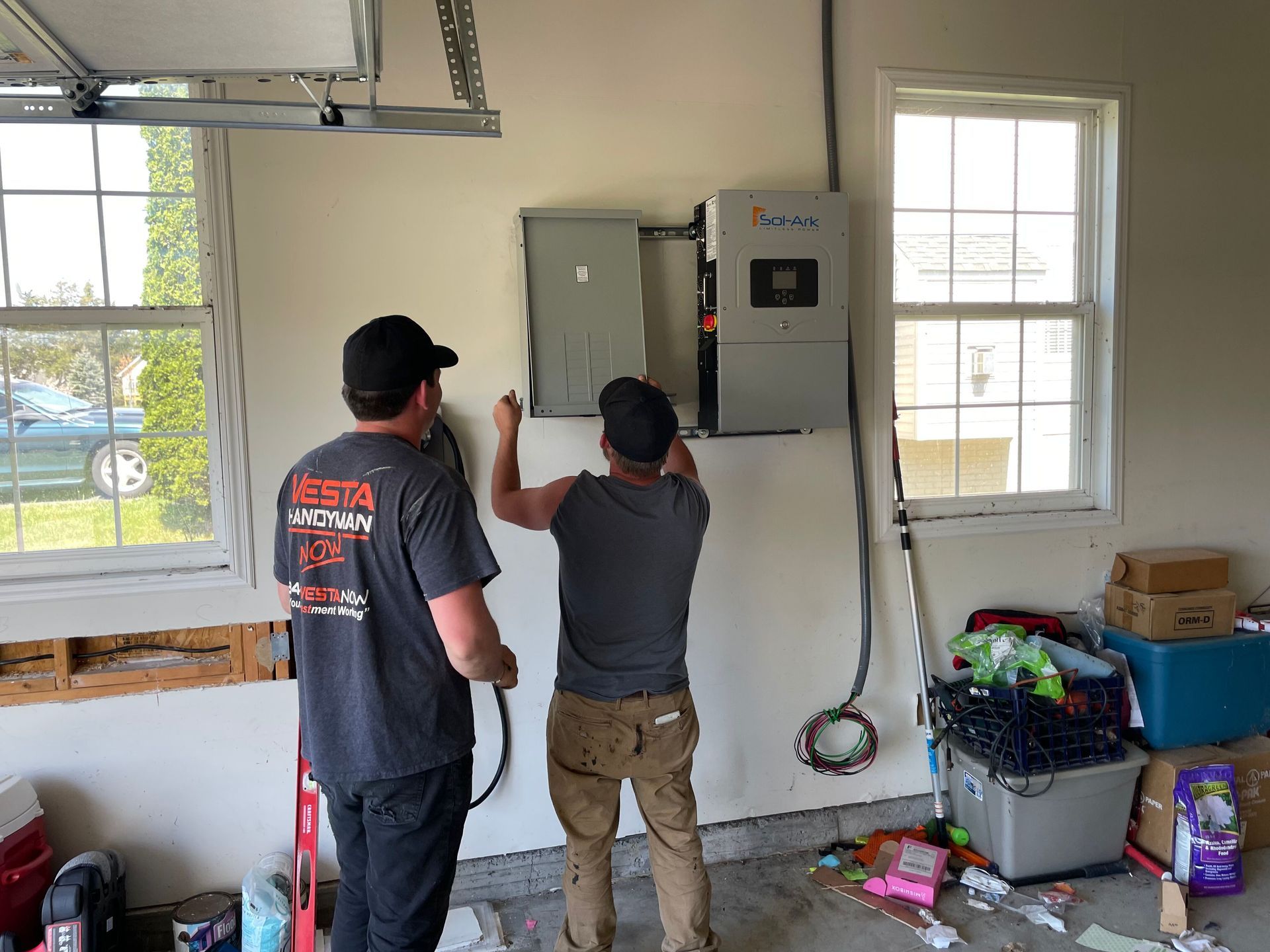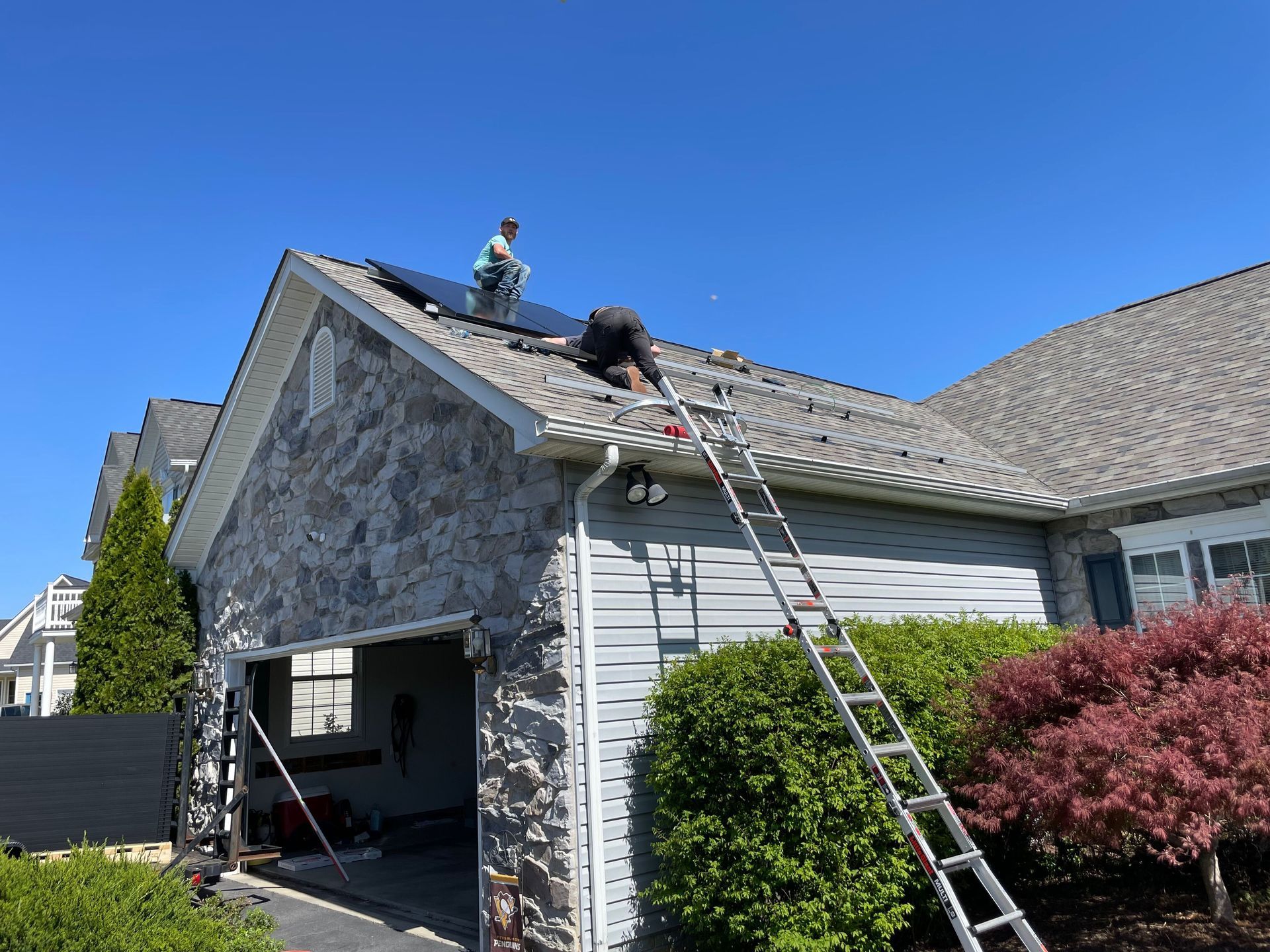
In the shift towards renewable energy, solar panels represent a significant investment for homeowners looking to reduce their carbon footprint and save on energy costs. If you've taken the leap or are considering solar energy for your home, understanding how to maximize your investment is crucial.
What Are Solar Panels?
Solar panels, or photovoltaic (PV) panels, turn sunlight into electricity. They consist of many solar cells, which are primarily made from a material called silicon. When sunlight hits these cells, it makes the electrons in the silicon move, creating an electrical current through a natural process known as the photovoltaic effect. This makes solar panels a crucial tool in generating clean, renewable energy, helping to cut down on fossil fuel use and reduce pollution.
Usually installed on building rooftops or spread out in large fields, solar panels are versatile and can be used for many different purposes, from powering individual homes to contributing energy to larger power networks. With ongoing advancements in technology, solar panels have become more efficient and affordable, making them an increasingly popular choice for people and businesses around the world looking for sustainable energy options.
Here are comprehensive strategies to help you make the most out of your solar panels:

Regular Maintenance
Keeping your solar panels clean is essential to maintaining their efficiency. Dust, debris, and other materials like bird droppings can block sunlight and reduce the panels' energy output. It's recommended to clean your panels at least twice a year, ideally during the spring and autumn when weather conditions are generally milder. In areas with heavy pollution or dust, more frequent cleaning may be necessary.
Optimal Placement and Installation
The efficiency of solar panels heavily depends on their placement and installation. To capture the maximum amount of sunlight, panels should be installed on the roof facing south in the Northern Hemisphere and north in the Southern Hemisphere. The angle of installation is also pivotal; it should ideally match your latitude to maximize sun exposure throughout the year. Engaging a professional installer can ensure that these factors are considered and optimized according to your geographical location and roof specifics.
Energy Usage Monitoring
Most solar panel systems come with monitoring technology that allows you to track energy production and usage in real-time. By monitoring these metrics, you can identify patterns in your energy consumption and make adjustments to use more solar power during peak production times. For instance, scheduling high-energy-consuming tasks, such as laundry or using the dishwasher, during daylight hours can increase your consumption of solar energy, thereby reducing reliance on the grid.

Smart Home Integration
Integrating your solar panels with a home energy management system can further enhance their efficiency. Smart systems can automatically adjust your home’s energy consumption based on the amount of solar power available. This might involve heating or cooling your home during the day when excess energy is being produced or using smart batteries to store excess solar energy for use during less sunny periods or nighttime.
Use of Solar Batteries
Solar batteries store excess solar energy not immediately used. This stored energy can power your home during the night or on cloudy days, increasing your energy independence and reducing your need to draw from the grid. Moreover, in regions with net metering, stored energy can be sold back to the power grid, potentially generating a return on your investment.
Understand Net Metering
Net metering is a billing process that credits solar power system owners for the electricity they add to the grid. If your system produces more energy than you use, the excess energy is exported to the grid, and you receive utility bill credits. Understanding the net metering policies in your area can help you optimize the financial benefits of your solar panels.
Government Incentives and Rebates
Many governments offer incentives, rebates, or tax breaks for installing solar panel systems. These financial incentives can significantly reduce the initial cost of installation and improve the return on your investment. Stay informed about local, state, and federal programs that could benefit you as a solar panel owner.

Upgrade or Expand Your System
As technology advances, newer models of solar panels and inverters come with improved efficiencies. Upgrading your system or adding more panels can be a viable option if your energy needs increase. Additionally, consider adding components such as smart inverters or energy management systems to enhance the overall functionality of your existing solar setup.
Community Solar Projects
If individual solar panel installation is not feasible due to space constraints or unsuitable roofing, consider participating in a community solar project. These projects allow multiple individuals to benefit from a single, large-scale solar array located off-site, providing a way to enjoy the benefits of solar energy without direct installation.
Educate Yourself and Stay Informed
Staying informed about advancements in solar technology and energy policy changes can help you make educated decisions about your solar energy system. Engaging with local solar communities or online forums can also provide insights and tips from other solar energy users.
Benefits of Solar Panels
Solar panels offer numerous benefits, such as:
- Ability to generate clean, renewable energy
- Can significantly lower household energy bills
- Potential financial incentives from the government, like rebates or tax credits
- Can increase property value, and homes equipped with solar energy systems often sell faster and at higher prices than those without
- Can contribute to energy independence, reducing or even eliminating dependence on the local utility grid
- Can provide power during outages.
- They have a low maintenance cost and are known for their longevity, often lasting 25 to 30 years with minimal upkeep
Bottom Line
By following the above-mentioned strategies, homeowners can ensure that they maximize the efficiency and financial benefits of their solar panels, contributing to a more sustainable future while enjoying the economic benefits of renewable energy. Contact Vesta Home Energy for all your solar power needs!


